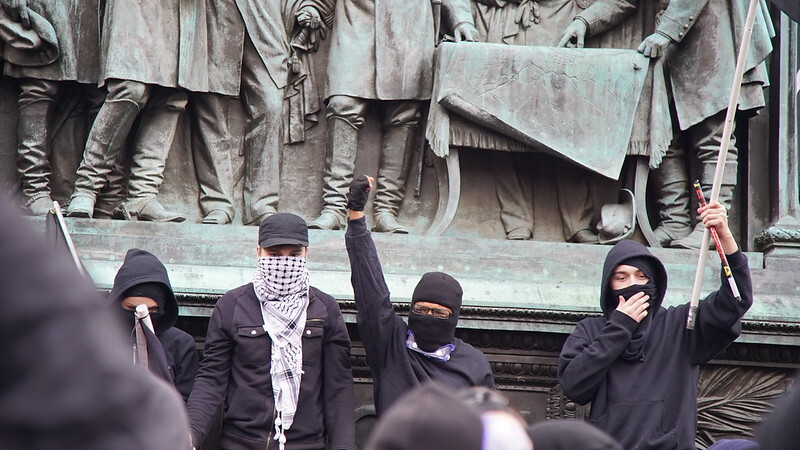How ANTIFA and Other Rioters Make Money by Getting Arrested During Protests: A Step-by-Step Breakdown
Some members have been asking for a written version of this:
The upcoming elections are stirring fears of potential unrest, with groups like ANTIFA preparing for action. What’s surprising to many is how these groups manage to profit from their arrests during protests. Below, I’ll outline the mechanics of how ANTIFA and other radical groups make money by being detained—and how it all ties back to your tax dollars.
1. Legal Observers: The ‘Eyes’ on the Ground
When protests escalate, you’ll often see people in green hats labeled ‘Legal Observer’ walking around. These individuals are part of the National Lawyers Guild (NLG), a progressive organization that claims to monitor for legal violations. However, they focus solely on documenting police actions, not the conduct of rioters. Their purpose? To provide footage and testimony that supports legal claims against law enforcement, setting the stage for lawsuits and compensation.
2. Strategic Arrests and Bail Protocols
Protesters often write a phone number on their arms—the hotline for the NLG. This group is prepared to bail out anyone arrested, ensuring that those detained don’t stay in jail for long. Once released, the charges are frequently dropped, especially in cities with sympathetic district attorneys. This lack of prosecution means that, while the protesters might have been arrested, their records remain clean.
3. The Lawsuit Strategy
Once charges are dismissed, the real profit-making begins. Protesters, with the help of NLG and other legal defense teams, file lawsuits against cities for unlawful arrest or excessive force. Citing police use of tear gas, rubber bullets, or other crowd control measures, they claim damages and seek settlements.
Cities have paid out substantial sums in response to these lawsuits:
Denver paid $1.6 million to seven individuals.
Austin, Texas disbursed $17.3 million.
Philadelphia compensated 343 protesters, totaling around $9.5 million.
These settlements, drawn from taxpayer funds, serve as a financial boon for the arrested individuals and the legal organizations involved. The lawyers’ fees are covered, and the remainder helps fuel future protests.
4. Recycling Bail Funds
Here’s where the process becomes even more lucrative. When someone posts bail—say, $2,500—and the case is later dropped, the bail money is returned to the individual who was arrested. However, this money was initially donated by organizations or activists—not paid by the protester. When it’s refunded, the protester pockets the cash, effectively receiving “pay” for getting arrested.
5. Funding Sources: A Network of Support
This entire cycle is sustained by grants and donations. Progressive groups like the National Lawyers Guild, Earth First, and others receive substantial funding:
Grants from the EPA for “environmental justice” initiatives can run into hundreds of thousands of dollars.
Nonprofits like the Sierra Club allocate funds to radical groups under the guise of environmental or social justice support.
Private donors and political figures contribute to bail funds. For example, Vice President Kamala Harris once promoted a bail fund that paid for protester releases.
6. The ‘Higher’ Purpose and Repercussions
Many rioters see this as a lucrative gig. Those who are jobless, underemployed, or ideologically driven don black clothing, mask up, and head to protests knowing there’s little risk and plenty of potential reward. They can spend a night throwing firecrackers, confronting police, and causing damage—all while knowing that sympathetic legal teams will cover their bail and potentially help them profit from it later.
This system not only fuels ongoing protests but ensures that rioters face minimal long-term consequences. With district attorneys in certain cities declining to prosecute and legal observers documenting police actions exclusively, the cycle continues unchecked.
Final Thoughts
This pattern is not hyperbole—it’s reality. I’ve seen it firsthand, spoken to those involved, and documented how the money flows. As we head into another election season, this model of monetizing protest arrests will likely intensify. Stay informed and be aware of how these mechanisms impact communities and taxpayers alike.


















